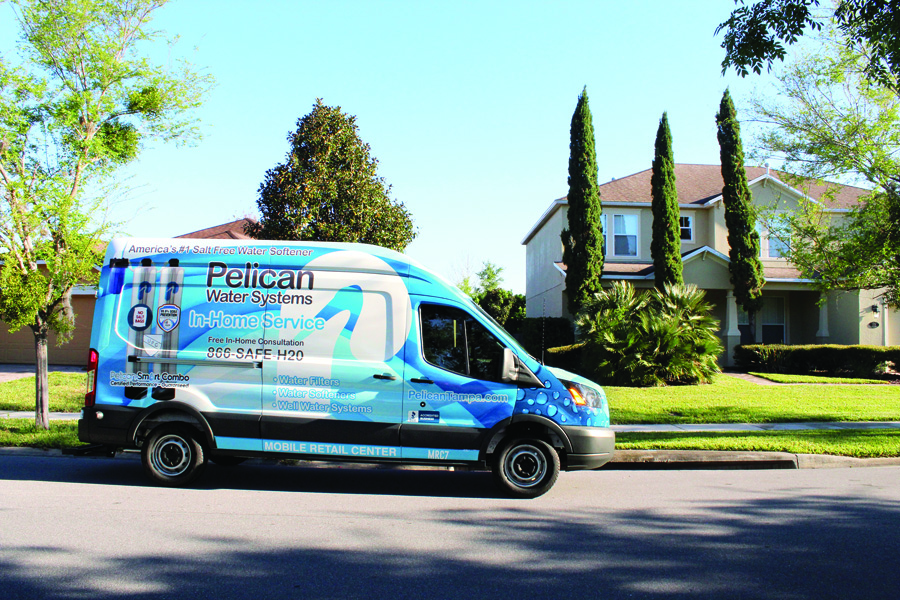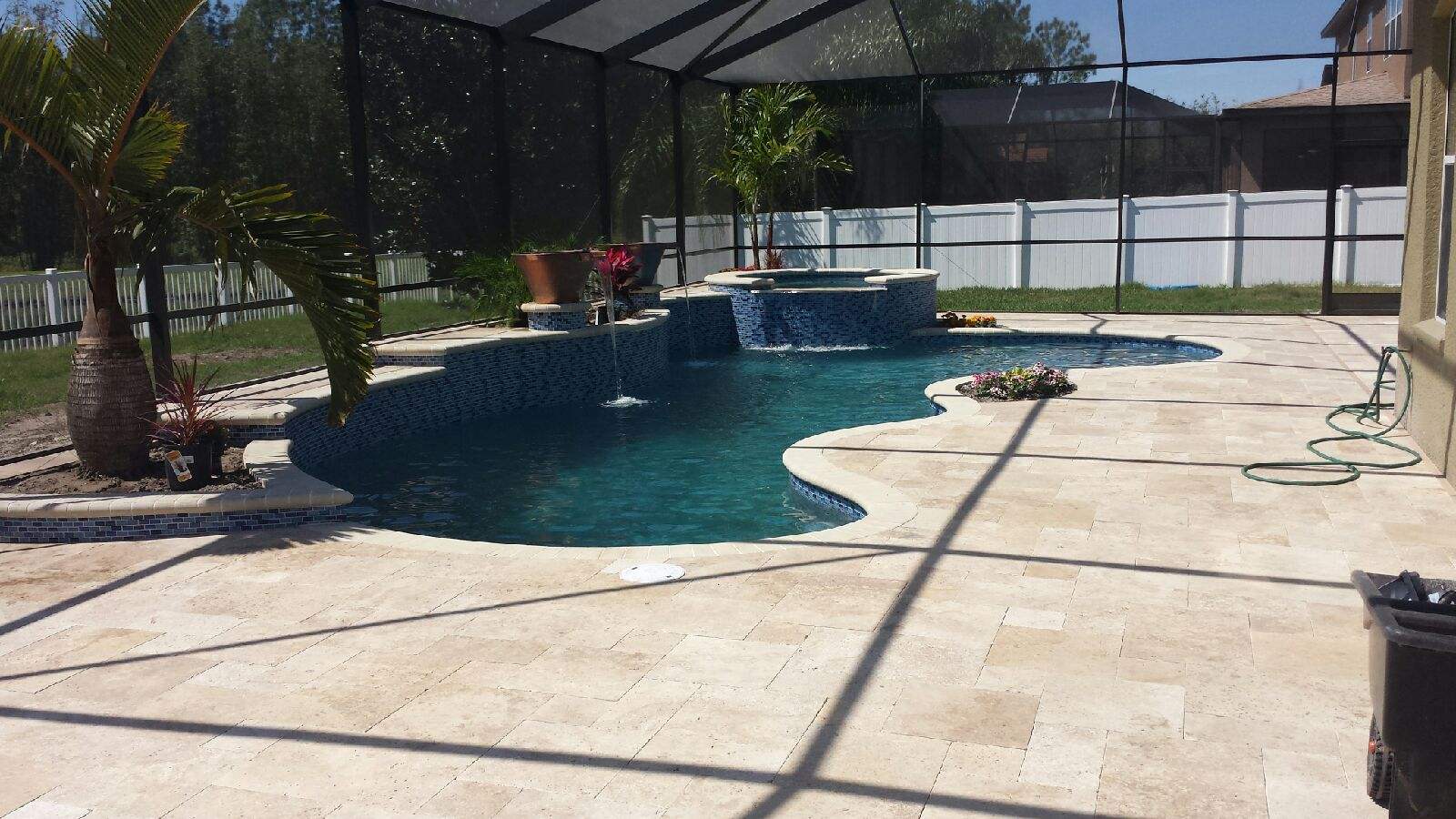
Do you have an aging water filtration system in your home that isn’t quite cutting it anymore?
Are you concerned about chlorinated water and contaminants that slip through your tap water’s purification process? Do you spend too much of your hard-earned money on bottled water?
If you answered yes to these questions, Pelican Water Systems would like to come to your home to give you a free consultation and water test, and set you up with a no-waste, no-salt, customized water filtration system that will meet your family’s needs.
“We want to educate people (about) what’s happening with their water,” Pelican Water Systems CEO Iain Whyte says. “Ours is a new way of approaching water treatment systems.”
Typically, buying a water filtration system is a multi-step process. Businesses will have a storefront where their products are on display. They’ll come to your home and test your water and then you’ll visit their store, sift through available products and eventually get a quote. This is after they come back to your home and conduct an inspection.
That process can be cumbersome, but Pelican Water Systems has a different approach. The company is designed to be a one-stop shop.
“We keep our best-selling products in our vans,” Whyte says. “Two-thirds of the van is showroom, the other third is inventory. We also test for up to nine major contaminants on site.”
Pelican Water Systems does not have a storefront, at least not in Tampa. The company’s Florida headquarters is located in Deland (northeast of Orlando).
Instead, Pelican offers what Whyte calls Mobile Retail Centers. These $45,000 mobile showrooms provide everything a technician/salesman needs in order to take care of everything on the checklist, from the initial water test to scheduling the installation of the system.
The company was formed in 2007 and broke into the Florida market in Ocala and Orlando in 2016, moved into Jacksonville and The Villages in 2017, and opened up in the Tampa Bay market a month or so ago.
Whyte says that sales to customers in Tampa, despite not having a location here, served as a catalyst to entering the market.
“We’ve been selling products online to Tampa customers since 2007,” Whyte says. “Now, we want to promote in-home service in the area.”
 Whether you use well water or municipal water, Pelican Water Systems has a solution for you.
Whether you use well water or municipal water, Pelican Water Systems has a solution for you.
The most common issues with well water are iron and sulphur. Iron leaves those rusty stains in your bathtub and sulphur is responsible for that unappetizing egg smell.
If you have well water, it’s likely that you have a septic tank. Septic tanks can let harmful bacteria like E. Coli and fecal coliform into your well water.
Pelican Water Systems can test for these bacteria in your well water, which is sent to its lab in Deland. Typically, the turnaround for results is 36 hours. Whyte recommends that you install a UV (ultraviolet) system if bacteria is detected in your well water. The UV system typically kills 99.9% of all waterborne microorganisms.
With municipal water, particularly with the City of Tampa, chloramines and/or chlorine are used to purify the water. While it’s theoretically safe to drink, most people dislike the chlorine smell and the way the chlorine dries your skin when bathing or showering.
“I’ve had problems with my skin ever since I started living in my house, so I decided to try as much as possible to improve my skin,” says one of the company’s online reviews. “I then got a shower filter from Pelican, and I’ve had a nice experience with them. Now the water comes out nice and I’ve noticed that my skin is smoother.”
If you’re on municipal water and sewer, you’re paying for the water you consume, as well as the water you dispose of. That’s another reason why Pelican Water Systems sells salt-free systems — homeowners don’t consume water through the filtration process. There are no discharges. The system doesn’t even need electricity.
“You get good, quality water from every faucet in your home,” Whyte says.
The headline product that Pelican Water Systems is promoting is the Smart Combo, a water softener and filter combination system. It combines a certified carbon filter with a certified salt-free softener.
The carbon filter, which is tested and certified by the International Association of Plumbing & Mechanical Officials (IAPMO), in accordance with National Standards Strategy (NSS) standards, reportedly reduces chlorine levels by 96.7 percent. The salt-free water softener is certified by the German Technical & Scientific Association for Gas & Water. Pelican Water Systems uses the German standards because there currently are none in the U.S. for that type of technology. The salt-free softeners are reported to reduce scale that can clog pipes and appliances by 99.6 percent.
If budget is an issue, Pelican Water Systems can even finance the system you choose.
Based on credit score and the length of the loan, monthly payments can be as little as $60/month, and Pelican Water Systems does not hide these prices. The company is a full-service retailer and the prices of all of their systems are available on the Pelican website.
Installation costs can vary based on where a customer wants the system installed. If the system needs to be further away from the source, your installation can cost more than it might if the system is going in directly adjacent to the water source. It takes between 3-5 days from the time you order for a technician to come out and install your system.
If you prefer the do-it-yourself route, Pelican offers a wealth of tools available for you to install the system yourself. There are even YouTube videos and tutorials that can be accessed through the website, and tech support is available through the Deland office six days a week (closed on Sunday), from 8 a.m.-9 p.m.
Pelican Water Systems also prides itself on giving back to the community. The company has partnered with organizations like the American Cancer Society, Our Home Transitional, the International Bird Rescue and Operation First Response. Pelican also sponsors Sustainability Scholarships every year to students who are U.S. residents and are enrolled full-time in an accredited university. Students are asked to submit a 30-60 second video demonstrating how they conserve water and write a 250-word essay highlighting what water conservation means to them.
There are two contests every year that award first, second and third-place scholarships. The next deadline to apply is October 15.
Pelican Water Systems’ Mobile Retail Centers can be at your home for a free consultation within three days of making an appointment. Appointments are set Monday–Friday, 10 a.m.-6 p.m., and can even be made on Saturdays. For more information or to schedule an appointment, call (8440 237-9949, visit PelicanWater.com or see the ad on page 29.
















